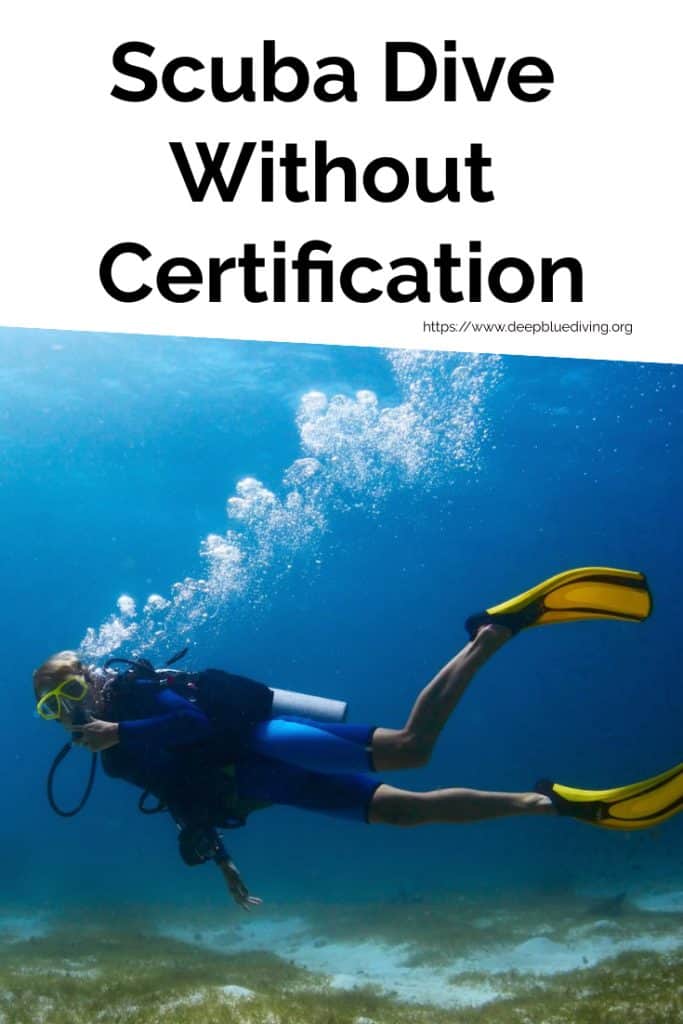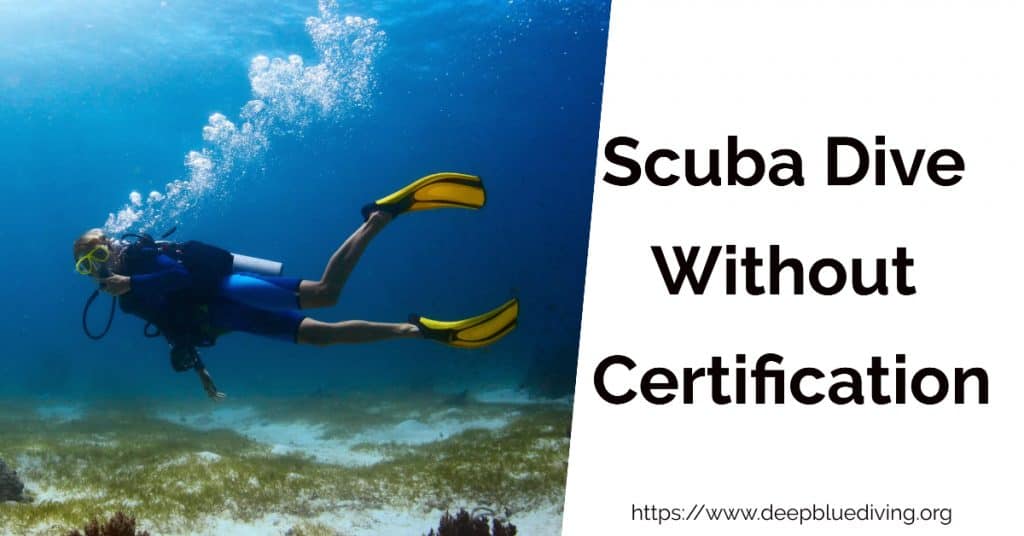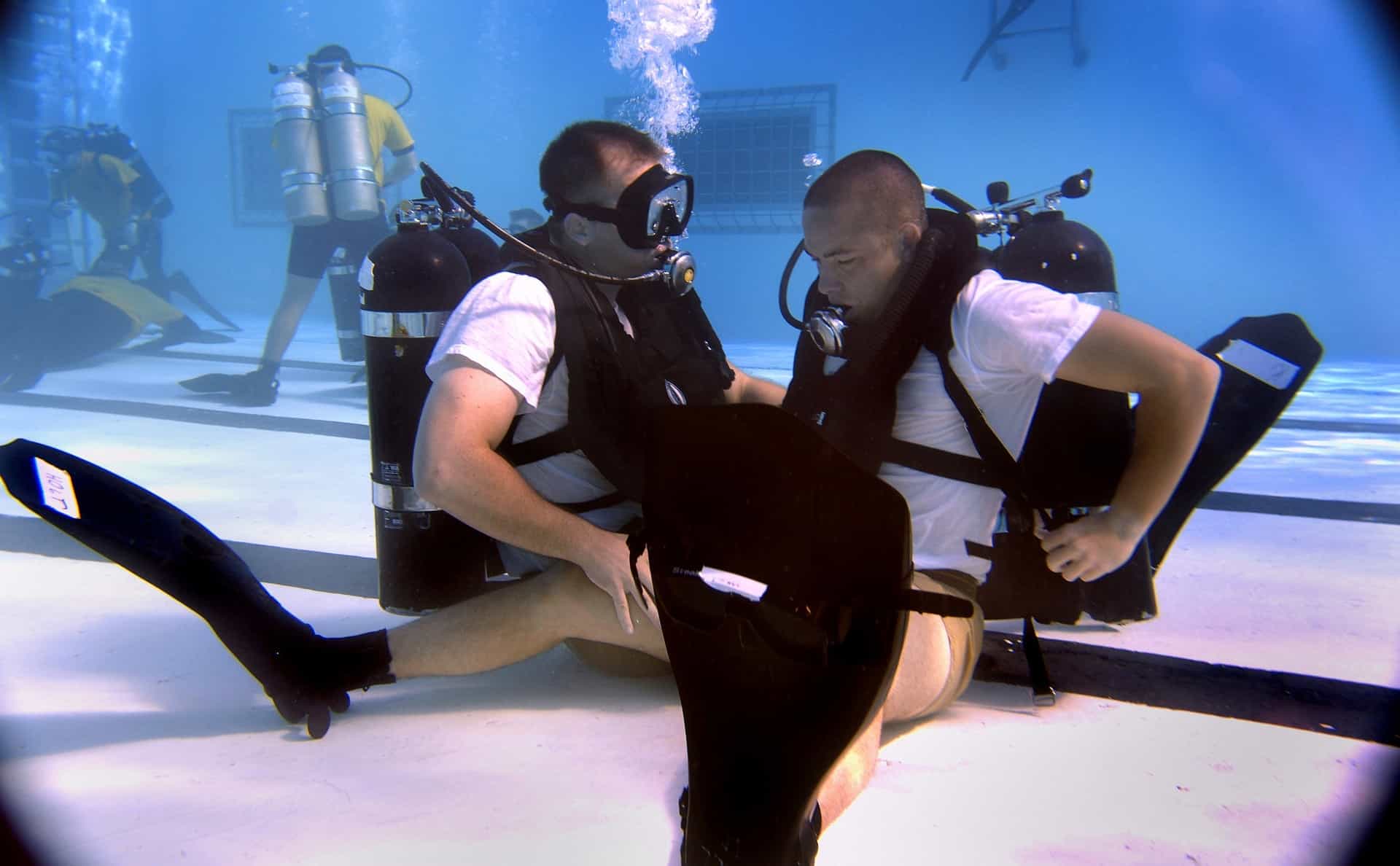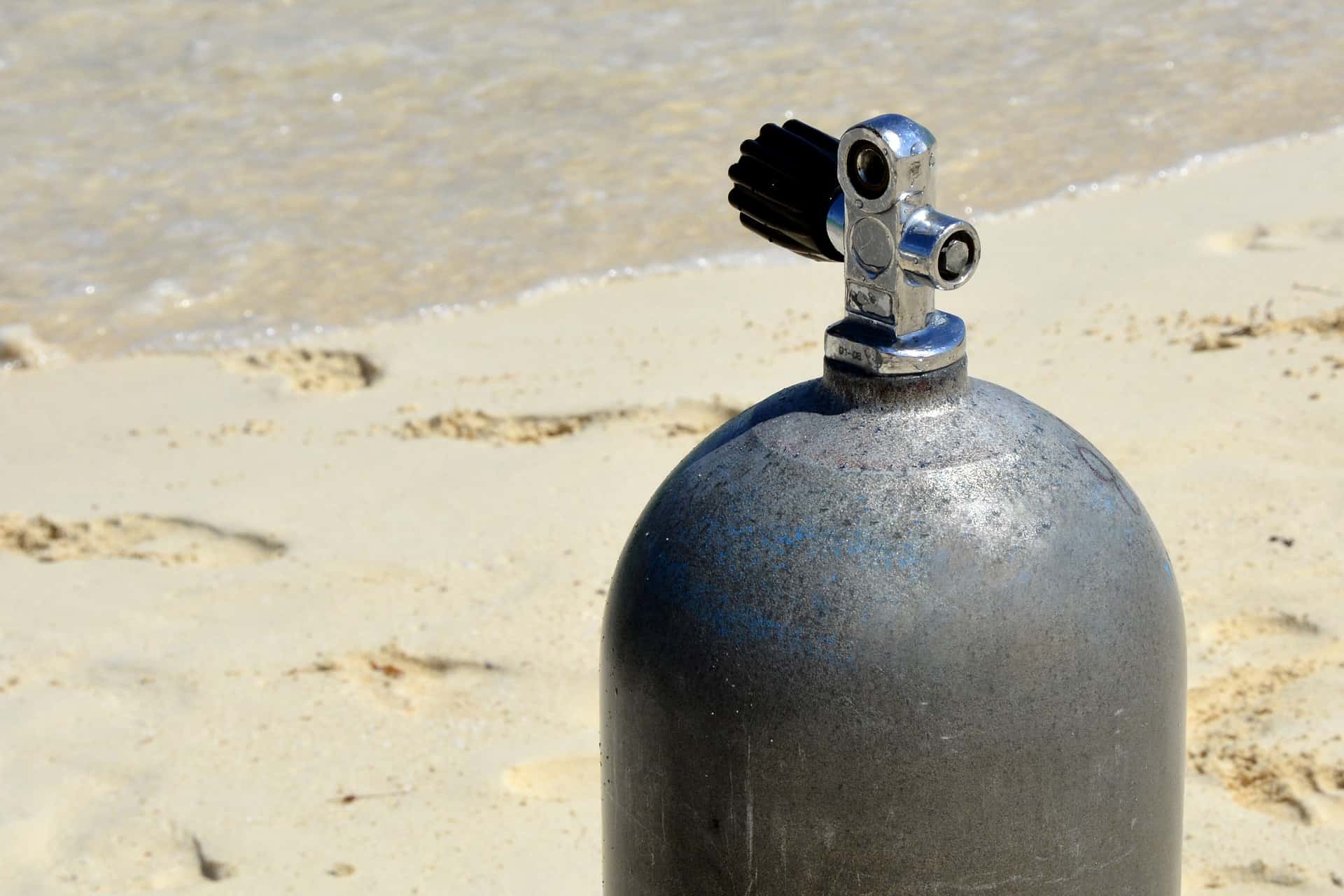Scuba Dive Without Certification – Are Diving Licenses Needed?
Every dive boat you get on it seems there is that person with a story about how they went scuba diving without certification. Their friend, or a friend of a friend, took them out, and they went diving. These stories may seem like they are a little far-fetched, but many people go scuba diving without certification.
Can you dive without being certified?
There are inherent risks when you do any activity that requires a license or certification. Usually, the training required to get the certificate pertains to vital safety information. For many licenses, there is also legal information you have to learn about the sport you will take part in.
Diving does not differ from any other sport that requires certification. In your training course, you learn life-saving information about diving and equipment maintenance. With all of this in mind, let’s look at some reasons you would go scuba diving without certification, the legality, and how you can make uncertified dives safer.
Is It Legal To Dive Without A Dive License?
There are no laws regarding the licensing or certifying of divers in the United States. Diving is an unregulated sport. Some areas may prevent all diving if they are protected wildlife areas.
Other areas require that you have a dive flag up when there are divers in the water. Technically, when diving is not prohibited there’s no law that stops you from going to scuba dive while not being certified.
You can scuba dive without certification and it is not illegals. However, most reputable dive centers and shops will not rent you gear or let you dive without being scuba diving certified.
Guided Dives
Most dive trips and dive boats will not allow you to dive uncertified if you are on your own. There are many dive shops that will teach an intro to scuba class that allows an uncertified diver to go into the open water and try out scuba diving. Most certifying agencies like PADI even have courses designed to let people try out scuba without paying for certification.
They do these guided dives in shallow waters to minimize the risk of expansion injuries and BENDS. Many protocols for introductory dives do not have divers descending more than 1 atmosphere (about 15 feet). This minimizes the pressure you put on your body and the chance that an unskilled diver will damage their ears or lungs by not breathing. The risk of contracting decompression sickness at such depths is greatly reduced.
Gear Rentals Without Certifications
Usually, dive shops and reputable dive centres you want to rent any gear from will want to see your dive certification first. This includes if you solely go to rent air tanks.
Even if you purchase your own gear to dive, you will have a hard time getting air tanks or fill-ups without a diving license. The legal liability of sending someone into the water with no proof they know what they are doing is just too risky for dive shops and they won’t provide gear or gas mixes if you want to scuba dive when you are not certified.
Why Should You Get Certified To Dive?
There are plenty of reasons you should get your diving certification before diving. A few of these reasons include knowing the physics of expansion injuries and how to prevent them. In addition to being able to recognize the signs and symptoms of decompression sickness, you learn things like buoyancy control in an open water scuba class.
Learning Basic Equipment Maintenance
In an open water scuba certification class, you’ll learn things like basic equipment maintenance. It is very important to recognize good scuba gear from bad scuba gear. When scuba diving you are in an enclosed environment you cannot breathe in. Having faulty gear can lead to a deadly scuba diving trip.
Learning how to attach the regulator to an air tank (The difference between DIN valves and yoke valves!) can ensure that you know your equipment is properly set up. Besides knowing how to set up your equipment, you will learn what to do in case something happens to your scuba gear when you are under the water.
There’s nothing scarier than having your regulator fail or your air tank suddenly goes empty because of a faulty pressure gauge. Knowing what to do in case of this type of emergency is a prime example of why you should take a scuba certification class.
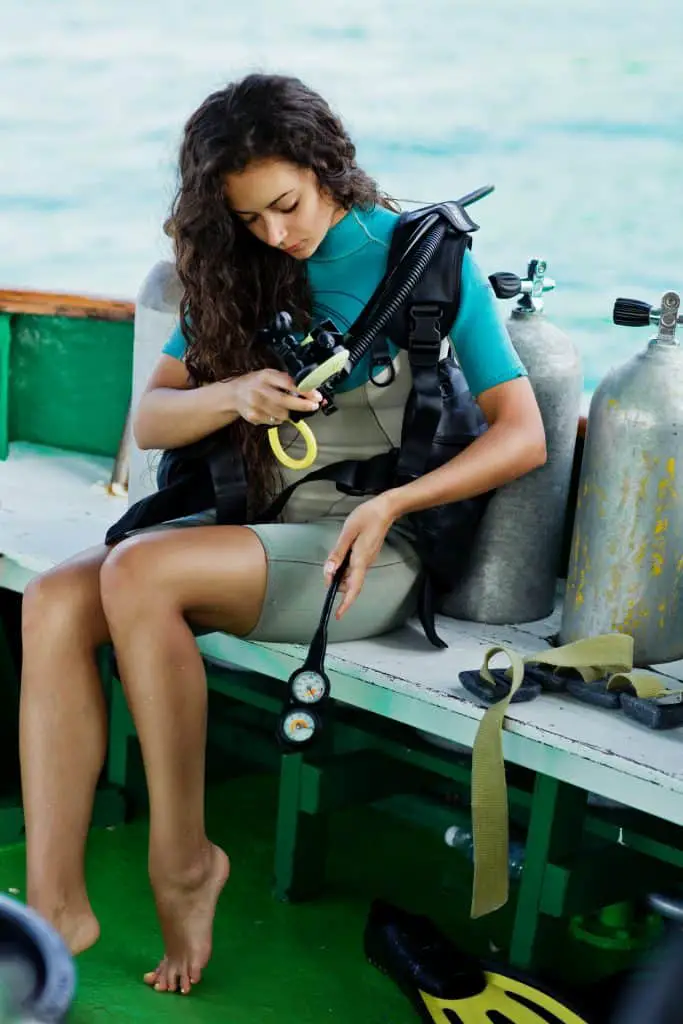
You Will Qualify for Dive Insurance
The Diver’s Alert Network (DAN), is an independent agency dedicated to helping divers in emergency situations. The Diver’s Alert Network teaches divers how to recognize expansion injuries and signs of decompression sickness. Besides that, they have physicians on standby that will interface with emergency personnel if you ever get injured while diving.
Another great thing that DAN offers is dive insurance. This is special medical insurance that covers any expenses related to scuba diving. Diving injuries often require expensive treatments and interventions.
A life-saving flight to a hyperbaric chamber alone can be a bankruptcy causing event. People with insurance from DAN need not worry about any costs associated with dive-related injuries and treatment.
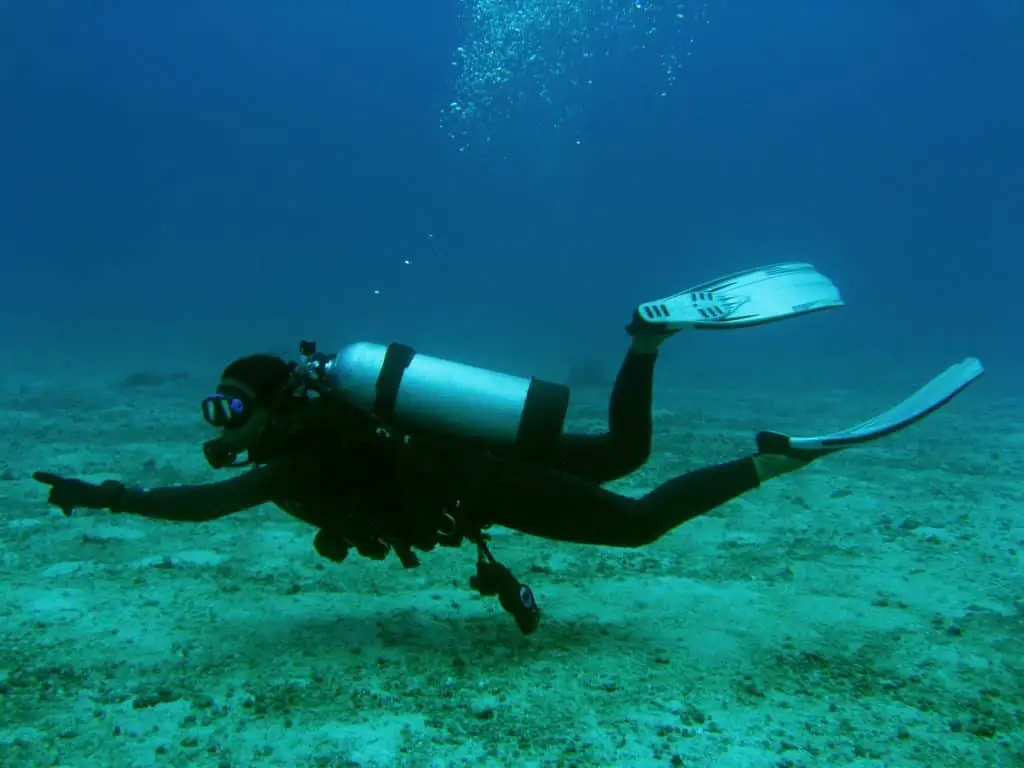
You Will Learn How to Control Your Buoyancy
When you watch videos or see pictures of a scuba diver it looks like they are floating seamlessly through the water. An unskilled or unpracticed diver may think buoyancy is something that happens naturally. Unfortunately, this just isn’t true.
Learning buoyancy control is one of the essential parts of getting a dive certification. Poor buoyancy control is one of the leading causes of decompression sickness and expansion injuries. The inability to maintain a constant depth can lead to injuries that may be life-threatening.
If you’re not able to control your buoyancy then your ascent and descent might end up being too fast. This can lead to serious injuries and even death.
If you can keep neutral buoyancy during a dive then you constantly will struggle to stay at a certain depth. This results in exhaustion and increased air consumption which will cut your scuba diving short.
If you go scuba diving without certification you will most likely not have had instructions on buoyancy control and, while you certainly can learn it yourself, will struggle during your dives. The buoyancy control aspect alone is worth getting a cert and not go scuba dive without being certified.
You’ll Learn Your ABCs
Any certified diver knows the ABCs of scuba diving. There are certain pre-dive checklists you must go through every time to make sure your gear is functioning properly. The ABCs checklist allows you to test your equipment easily.
Besides learning how to do a pre-dive inspection of your equipment, you learn many other important scuba diving basics. These are things you will not learn through uncertified diving.
Knowing how to dive and dive safely will make diving an enjoyable experience. No one wants their fun and exciting dive trip to end with a hospital visit. Getting your diving certification can help make sure that you don’t end your vacation in a hyperbaric chamber.
It will be up to you and your choice whether you dive uncertified and go scuba diving without certification. Uncertified diving is not illegal, and if you have the equipment, there’s nothing to stop you. Certified divers worldwide will recommend that you get your scuba diving certification before you get into the water.
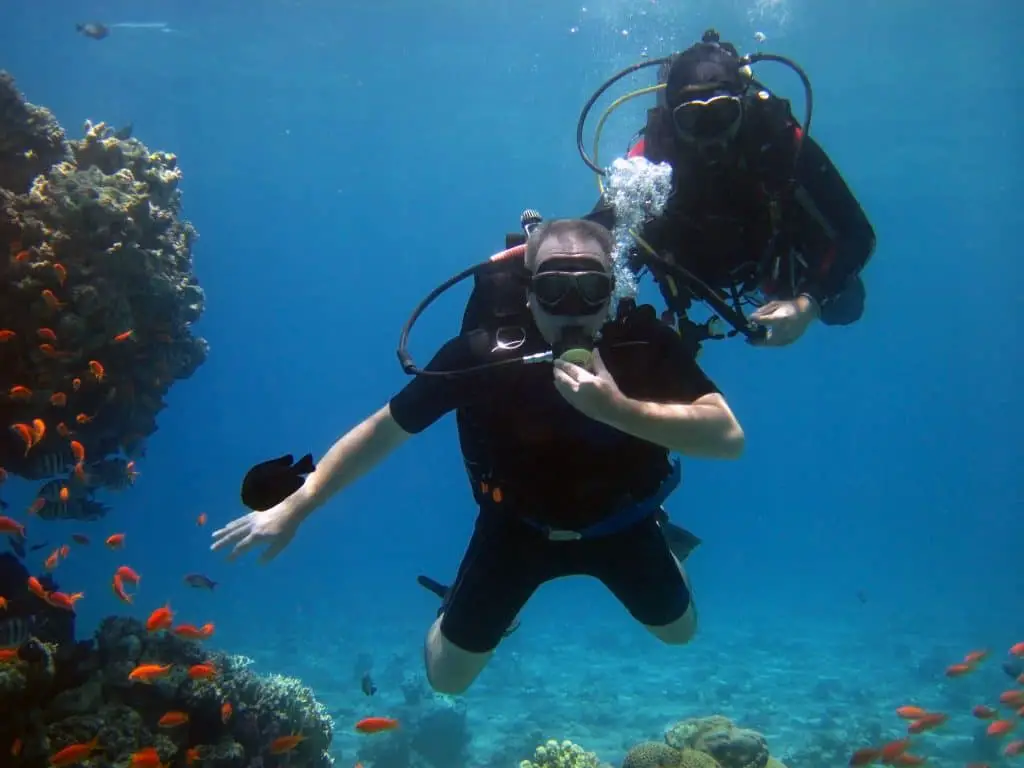
How can you get certified?
There are several scuba dive training agencies with the best known being PADI. These agencies offer training and curriculum for various levels of scuba diving.
In the early days, each of these agencies came up with their own curriculum and training. In the meantime, the divers have put enough pressure on these agencies to come up with common standards for the basic certifications. These entry-level programs, therefore, are very similar no matter which agency you get your certification from.
The goal of each of these agencies is to teach a new diver to become a proficient diver that obeys the laws and understands the dangers and how to prepare when they go diving. The guidelines allow enough leniency for the teacher to include specific local dive conditions.
The courses are also not prohibitively expensive. Cost should not be a reason that you scuba dive without being certified.
What is the basic scuba certification?
The most basic course is usually called Open Water Diver. It consists of three different parts.
- Academics
In this part the future certified diver learns the theory on diving. It includes procedures and rules to regulate scuba diving. This part can either be online or in a classroom. - Confined Water
This part covers practice sessions in a pool. You learn the different parts of scuba gear and how to use it. - Open Water
In this part you undertake a number of supervised dives. You have to show that you have the skills necessary to dive in open waters.
How long does it take to get your scuba license?
There’s no set time for how long it takes to get Open Water certified. Some training centers offer courses that you can take during a vacation trip and you get your scuba certificate within a few days.
Self-paced training can take longer and it’s up to you on how long it will take. There should be no reason though to need longer than a few months to wrap everything up if you get your scuba diving license in a local dive center which has gear, pool and open water available to train and certify you.
How expensive is it to get certified?
There’s no specific number that we can give. It depends on where you’re taking the certification, etc. Even within the U.S. the cost can vary dramatically.
The cheapest (and fastest) usually is to do it during a vacation. Dive centers in those vacation locations offer quick courses and certifications and will often charge on the lower end as they are associated with the resorts you stay in.
If you want to get your certification locally then reach out to the different dive centers in or close to your location and find out what the cost is. You will have to estimate a couple of hundred dollars as the minimum.
In addition to the training course fees, you will also have to add any rental equipment you might require as well as fees for the tests, etc. When all is said and done you should end up with a few hundred dollars to get your scuba certificate. The more gear you own and bring the cheaper it can and will get.
Is the certification good for life?
Yes, it is and if you go scuba diving regularly then you won’t have to think about getting ever recertified or taking a refresher course. If you have not gone diving for a while then you should consider taking a review class. It’s technically not needed but it’s a good idea to make sure you’re not rusty when you get back underwater.
However, you want to consider taking regular refresher courses anyway. The gear and equipment changes, rules and regulations might be adapted and having a refresher course will make sure you stay up-to-date.
The best and safest is to dive regularly. Keep scuba diving and continue your training to stay current with the latest changes. This will ensure you enjoy your dives and stay safe when you go diving.
